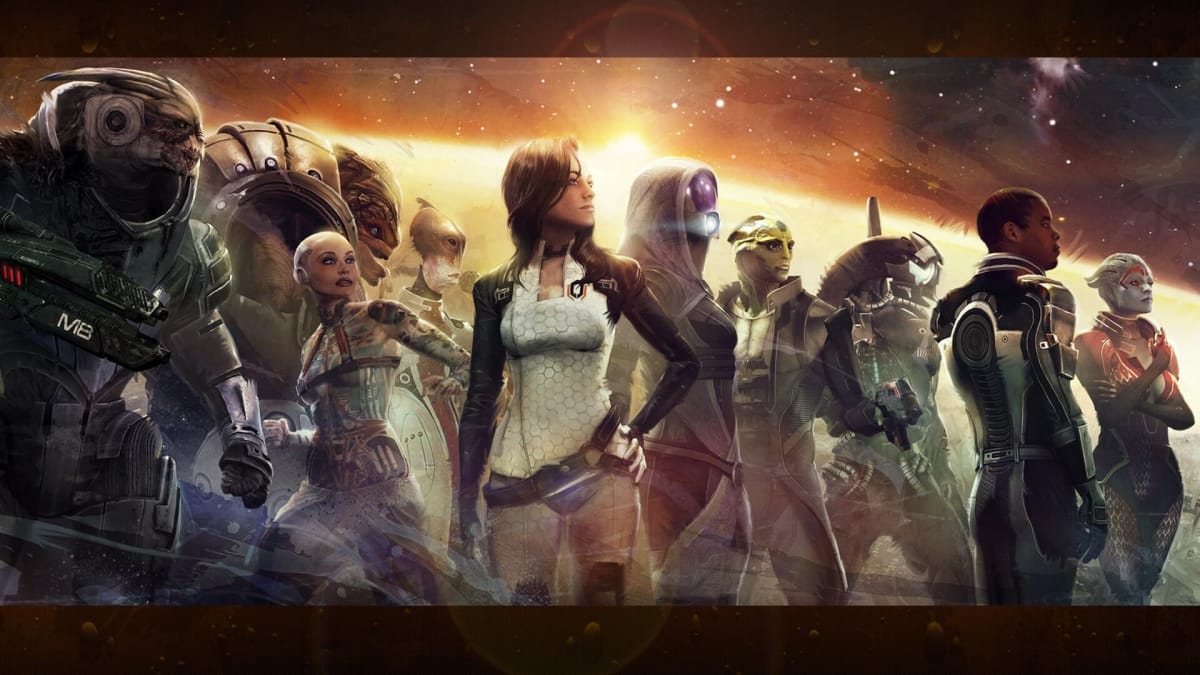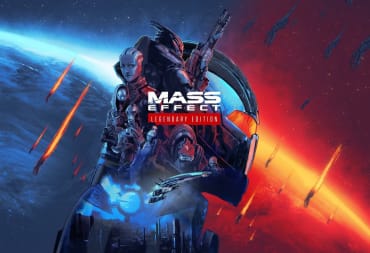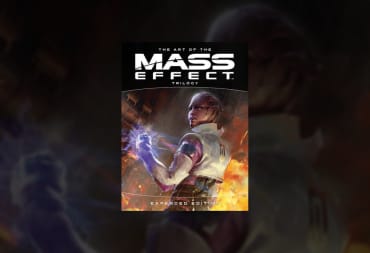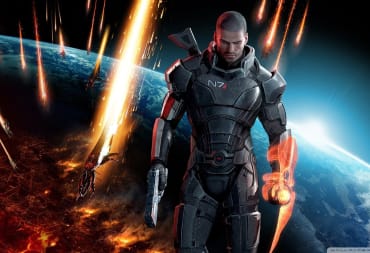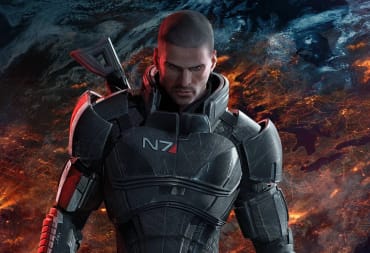Unofficial fanboy holidays are really just marketing gimmicks for products we love, but it does say something about the recognition of brands and icons that they are embraced by the fandom. This is what makes days like N7 day, the unofficial holiday for the acclaimed Mass Effect series, unique.
Sure, N7 day is as corporate as it comes: a flimsy excuse to remember a relatively popular video game by helping with the promotion of that said game at a fixed interval. But it also becomes more than just that at times. It becomes a celebration of Mass Effect, and what brings those fans together in their own positive ways is a single point: a bit of pop-culture consumerism, to just lay back and enjoy themselves in a moment of blissful joy.
It was a trilogy that showcased technical and visual breakthroughs that were ahead of its time, and narratively spoke to many for its near-mythical storytelling; a modern-day space opera, video games’ very own Star Wars.
The announcement of the Legendary Edition of the Mass Effect trilogy on this N7 day is one that was a long time coming, but it definitely makes me reflect back on the series in a way I have not thought about in years. It is somewhat pedantic nowadays to write essays about what the series did right and wrong (which didn’t really stop me before when I explored its biblical themes for the hell of it), but there is something special about the announcements of today that help me shed my inner critic—if for a brief moment—and embrace that wave of positive passion for the series as a whole.
I make no apologies for being a fan of Mass Effect. For me, the entire trilogy is without a doubt some of the most influential, important, and iconic series of games ever made, warts and all. It was a trilogy that showcased technical and visual breakthroughs that were ahead of its time, and narratively spoke to many for its near-mythical storytelling; a modern-day space opera, video games’ very own Star Wars.
Mass Effect, like many great games, leaves behind a legacy.
That comparison is probably more prophetic than we can imagine now too, considering how passionate, yet divisive, the fanbase can be over Mass Effect. It is no secret that the ending to the trilogy still remains a point of contention. Even to this day, nearly eight years on since the release of Mass Effect 3, discussions can get heated about the series as a whole with the game’s final moments being a major sticking point. It is far from the only issue either, from various gameplay inconsistencies to a general move away from the typical BioWare roleplaying style.
This would seem like a moment of pure toxic divisiveness that would destroy the fandom of Mass Effect, yet there is something powerful in that discussion that keeps the game relevant to many players. Why is it that after nearly a decade of games and improvements, we come back to the game we love? Why is it that so many people have been clamoring for a remaster for years, despite the fact that they know how it all ends?
Mass Effect, like many great games, leaves behind a legacy. Be it mechanics, visual cues, emotional storytelling, or exhilarating action, the trilogy just blends together into moments burned into the memories of the collective consciousness of its fans. It is that lasting power, that memorable impact, that really allows Mass Effect to endure beyond its role of being a franchise, but a cultural touchstone that for generations will influence many more gamers than we think.
This legacy goes beyond just the above. Many fans can tell you their favorite moments in the trilogy; their favorite lines to quote, favorite characters to romance. For myself, the most emotional gut punches came from a mix of camera angles and dialogue expression; the friendship with Garrus comes to mind, culminating in a look of desperation in his eyes as he faces an inner conflict to murder someone remorseful for their misdeeds. Another is the deep personal connection with Liara, a character that becomes a complex confidante to Commander Shepard as the series progresses. Of course, the games’ high watermark is the Suicide Mission in Mass Effect 2, a perfect blend of choice, consequence, action, and tension, fully backed by some of the best music ever made for a video game.
These moments are just a taste of the feelings that Mass Effect can conjure up, and for every player who went on this odyssey with Commander Shepard, they too have their own memories enshrined that speak to their experiences. Although these players don’t speak in one voice, their experience with Mass Effect echoes with an understanding that fans would recognize. Their experiences shape the legacy of Mass Effect, for both good and for ill, into something that will outlive the moment in pop culture it first resonated.
It is this type of dedication and passion by the fandom that can be an overwhelmingly positive force. Gaming often deals with cynics of all stripes, and gamers are often fueled by a notion of what is right to justify their words and actions. Rage and anger, with words frothing at the mouth from video to article, often linger when it comes to the hobby we love; a sort of self-mythology of the gaming world around us.
Yet, that cynical edge often pales in comparison to narratives of compassion. Some of the best work I ever wrote for TechRaptor are two articles—ironically about two sci-fi games—that tapped into the communities that loved them. The first was No Man’s Sky, well before the game was updated to the state it is in now, with hundreds of features and improvements that have transformed its perception of a failed product to a hero's redemption. The fans of No Man’s Sky, even at the beginning of the game’s life, were unwavering, and their positivity and joy to escape in a world they found connection with shined through.
Mass Effect is a shared language that is recognizable by its characters and symbols, themes and mechanics. It is special, which allows it to leave an enduring legacy for others to enjoy.
The second, of course, was about Mass Effect. The general feel for many I interviewed, all a cast of characters right out of the unofficial BioWare forums, are often closer than most to their connection with the series. It is a love-hate relationship at best, with many lamenting the shortcomings that the game does have, but not in a way that is vitriolic or dismissive. Even the much-maligned Mass Effect: Andromeda, for all of its faults, found fans and a newfound appreciation amongst members of the community, a testament to the love that fans have for the series.
The community surrounding Mass Effect is like the community around No Man’s Sky, Halo, or really, any subculture surrounding a game with a legacy. Through highs and lows, thick and thin, the love for the franchise is what shines for them, draws them back to go on one more adventure as Commander Shepard. That is what makes it special to a lot of gamers: Mass Effect is a shared language that is recognizable by its characters and symbols, themes and mechanics. It is special, which allows it to leave an enduring legacy for others to enjoy.
This is the enduring feeling I have for the Mass Effect trilogy. No matter how many years pass, the legacy that lives on will be one that stands the test of time.
Have a tip, or want to point out something we missed? Leave a Comment or e-mail us at tips@techraptor.net
